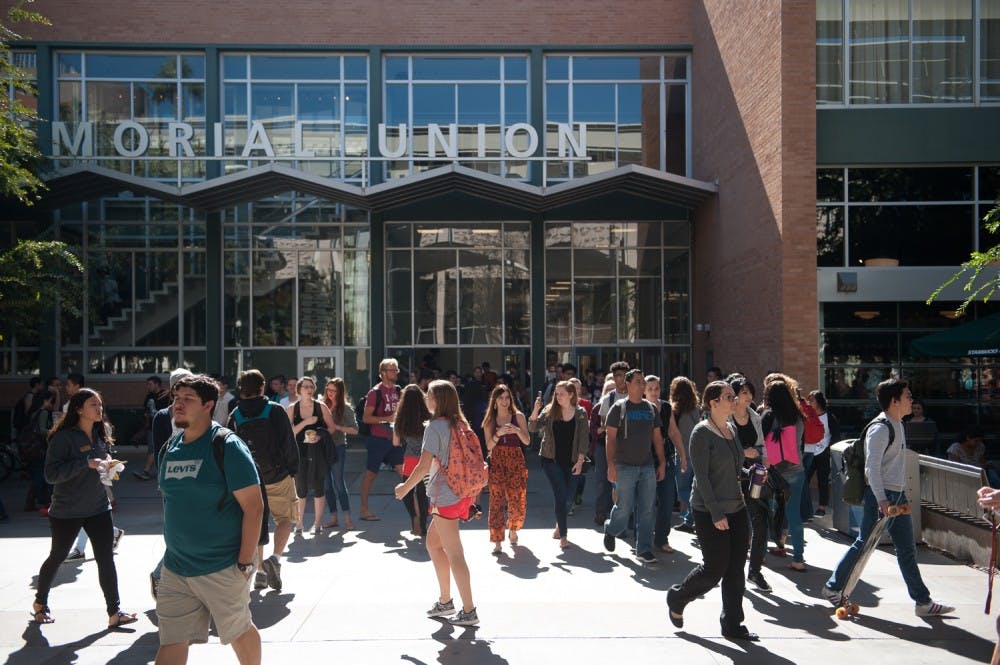The Arizona Board of Regents approved ASU’s proposal for tuition increases during the 2016-17 academic year during a meeting Thursday.
The new rates include a slight tuition increase for resident students as well as a larger increase for nonresident students.
During the meeting’s roll call for the proposal, Regent Greg Patterson said he wanted to explain his vote to approve the increase.
“It’s technically not the tuition that’s supposed to be as free as possible; it’s the cost of education that’s supposed to be nearly free as possible,” Patterson said. “I think this is part of a package that allows us to really accomplish that.”
Starting next fall, the University’s tuition will increase as such: $1,000 for international and out-of-state undergraduate students, $1,100 for international and out-of-state graduate students and $200 for in-state students.
Regent Larry Penley said that while none of the regents want tuition costs to increase, they each recognize what state universities need to remain competitive with the money budgeted by the state government.
“I hope what we can do next year is really address more explicitly the issues of financial aid,” Penley said. “We all understand that these repeated — even small requests — continue to hurt the middle class in our state.”
For resident students, a proposed $50 decrease in a previously enacted surcharge, which had previously charged these students $320 during the 2015-16 school year, will adjust the in-state tuition increase to a net increase of $150.
ASU President Michael Crow said the decrease in the surcharge is a reflection of an expected increase in higher education funding from the state in the coming fiscal year.
“The surcharge is an effort on our part to sort of navigate this space of uncertain public investment in particular uncertainty as the new models are shifting,” Crow said. “Rather than locking in a fixed tuition over a long period time, we’re trying to deal with a short-term fee that dissipates as the state’s investment increases.”
ASU’s residence halls and required meal plans will also increase during the 2016-17 academic year — about $142 more for residence halls and $105 more for the meal plans.
Regent Patterson said the board recognizes that these fees add additional weight to the cost of attending school on campus.
“I want folks to know that we care about these numbers as well,” Patterson said. “We recognize that the cost of attending the University that the parent pays or that the child pays is an entire package, and we really watch these numbers carefully.”
However, Crow said living on campus is not mandatory. Twenty percent ASU’s freshman class does not live in the University’s residence halls.
“That’s a very large number of people who are making the choice to live at home or somewhere else,” Crow said. “What we’ve done … is we provide the information that we believe this an important choice to make if you can, but if you can’t, you’re not required.”
Reach the news editor at aplante@asu.edu or follow @aimeenplante on Twitter
Like The State Press on Facebook and follow @statepress on Twitter.




